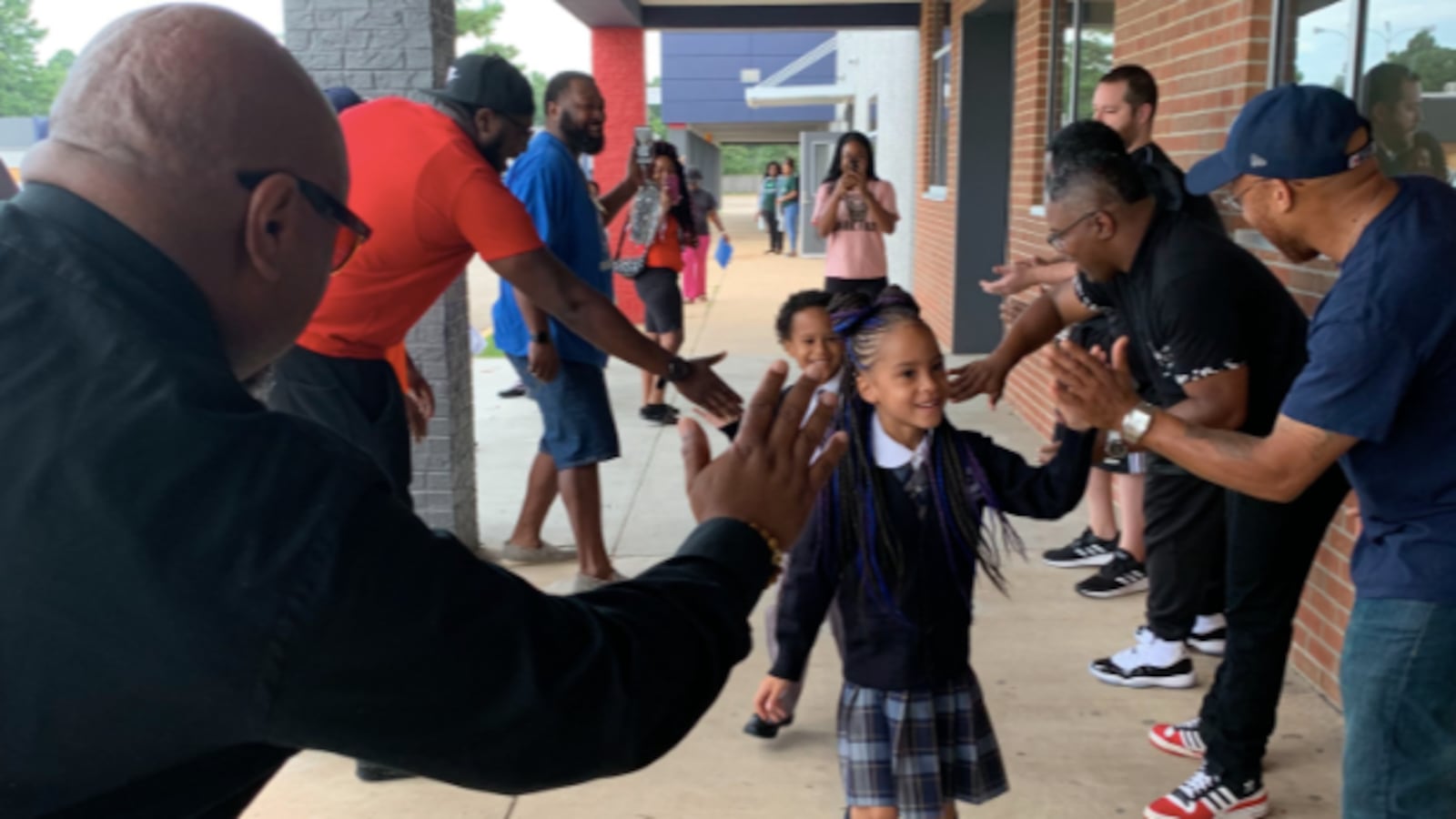It’s hard to believe that school has been back in session for more than a month. Now seems like the perfect time for us to share our goals and vision for education coverage this year.
It’s our way of being transparent about our mission of covering educational change and equity in communities that need it most. Not to simply regurgitate facts and sound bites from politicians and policy makers, and not to advocate for or to condemn policies and initiatives, but to bring a critical and analytical eye to these efforts and to let you know what is going on inside Tennessee’s schools. Beyond that, we also want to engage and elevate the voices of students, parents and teachers, and other stakeholders in the education of Tennessee’s schoolchildren.
First, let me re-introduce you to the team. There are reporters Marta W. Aldrich who leads our state legislative coverage, Caroline Bauman who covers the Achievement School District, and Laura Kebede who writes about Shelby County Schools, the largest school district in the state. And there’s me. I oversee the Tennessee team, and this year I’ll also be concentrating on covering early education issues.
Here is our syllabus of some of the big topics we’ll be focusing on at Chalkbeat Tennessee this school year:
The future of Tennessee’s school turnaround work: Six years ago, the state created the Achievement School District with the lofty goal of propelling the state’s lowest-performing schools into the highest-performing schools. We’ve written about how those schools haven’t improved — in fact some are worse. And we’ve reported how some achievement districts in other states aren’t faring much better.
This year, we’re continuing our focus on accountability in school turnaround work. What now? What’s the future of the achievement district? We’re committed to bringing you answers.
We’ll also continue to track other turnaround efforts within school districts, like Shelby County’s Innovation Zone, which operates like traditional schools with some of the autonomy of charter schools, as well as the district’s Empowerment Zone, a scaled-down version of the iZone that has a neighborhood-centric approach to improving schools.
Can Memphis and Tennessee get students to read by third grade? Last month, we hosted a listening tour in Memphis to get input on what you want to know about pre-kindergarten to third-grade education. Many of you had questions about Shelby County’s pre-K expansion efforts and what that means for literacy efforts. We’ll be using your questions and feedback to help inform our reporting. (More on the listening tour in coming days.)
As math and science scores have climbed, literacy scores are stubbornly resistant. The state has a goal to get 75 percent of its third-graders reading on grade level by 2025. Currently, less than half of its students are there. This year we’re exploring what Tennessee’s tougher reading expectations mean, including a new plan to start holding back students in Memphis who don’t read on grade level. We’ll also scrutinize other states’ efforts to improve early literacy and why all of this is so important.
How teachers and staff address the effects of poverty, trauma, and mental health in the classroom: Support for the mental health needs of students was the No. 1 issue that emerged during education Commissioner Penny Schwinn’s cross-state visit to classrooms in 30 school districts earlier this year.
This year, we’re also examining how adverse childhood trauma affects students and teachers and how schools are dealing with it. Researchers have tied stressful events such as divorces, deportations, poverty, neglect, sexual abuse, gun violence, and other traumas to lower math and reading scores, poor health, and behavior problems.
We’re looking at how teachers around the state are being trained to spot and respond to such traumas. And we’re looking at how districts are starting to question the “why” behind student misbehavior before meting out discipline.
What do expanded school choice options mean for education quality and equity? Earlier this year, Tennessee lawmakers passed voucher legislation creating an education savings account program that would allow parents to use public money for private school or education-related expenses.
The law was a signature piece of Gov. Bill Lee’s push for school choice options in Tennessee. Critics, however, say the law, which only affects Memphis and Nashville schools, will siphon money and students from districts, further eroding public schools.
This year, we’re looking closely at what this new law means, how it will affect public schools, and who will sign up for the program. We’ll keep you updated as education officials write the rules and as opponents try to get the law rescinded.
Thanks for reading, but don’t stop here. Please stop by when we host forums and happy hours, give us feedback when we seek ideas, and let us know when you think we got it wrong — and even when you think we got it right! We welcome your insight and your expertise.
I’m looking forward to a great year. You can reach the entire team at tn.tips@chalkbeat.org or at our individual emails: Marta is at maldrich@chalkbeat.org, Caroline is cbauman@chalkbeat.org, Laura at lkebede@chalkbeat.org, and I’m at jajones@chalkbeat.org.
You also can find us on Twitter @ChalkbeatTN, or on Facebook at https://www.facebook.com/chalkbeattn.

